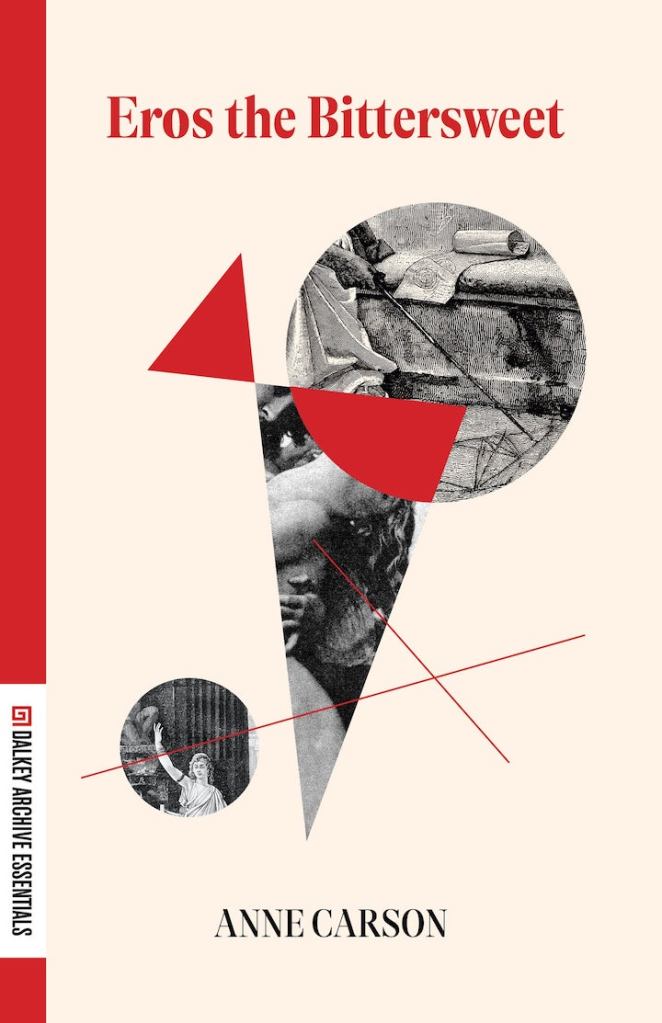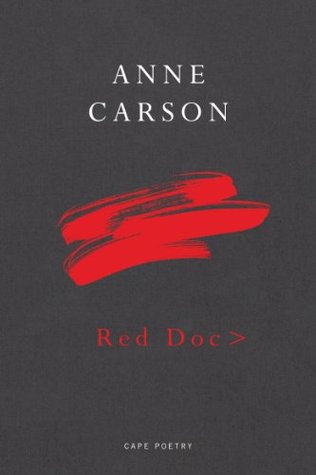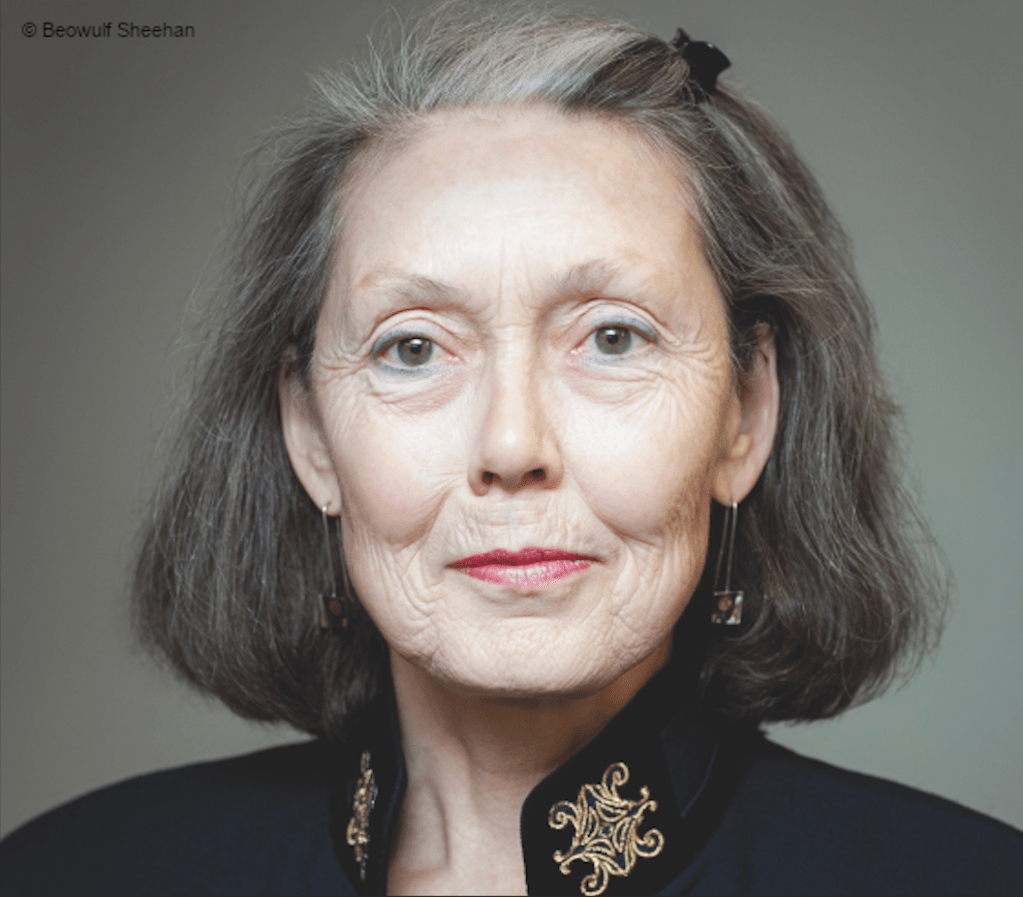George Salis: Your first book of criticism, Eros the Bittersweet, was first published in 1986 and is set to be reprinted later this year as part of Dalkey Archive’s Essentials series. Can you reflect on this early work, how it fits into your oeuvre, and how you expect a new generation of readers to react to it?

Anne Carson: How nice to be thought Essential in some way! Eros the B was made out of a Ph.D. dissertation that had a much wittier title (Odi et Amo Ergo Sum). I still don’t know exactly how. Nothing is more fun than cutting and pasting. And there was a lot of going around 4 corners of a building to see if there might be a 5th corner. Certainly the book had no success at the time. The reviewer in TLS summarized it as “frigid but queasy” and the academic community wrote me off as a popularizer. Funny, popularizing has now become popular, even in the academy.
GS: When you wrote Red Doc>, which is a sequel to your Autobiography of Red, you said, “To live past the end of your myth is a perilous thing.” I’m thinking about how Nikos Kazantzakis wrote The Odyssey: A Modern Sequel. Do you have an opinion on this work specifically and modern Greek literature generally? I wonder if the body of modern Greek literature could be viewed as a perilous sequel to the enduring and nearly omnipresent myths that came before.
AC: Pretty sure I don’t know enough about modern Greek lit to answer this. I guess the wider question is whether anyone can ever invent new myths. So far the attempts seem shabby.
GS: What is a novel or other creative work you’ve read and think deserves more readers?
AC: All the work of Mavis Gallant.
GS: This is a guest question from Marina Sofia: “You say somewhere that the thoughts themselves matter less to a creative person than the routes one takes between them. And, more recently, you said that you have returned to drawing rather than writing. Is it getting harder to find new paths between thoughts or are you becoming less interested in the thoughts themselves?”

AC: New paths are a matter of attention and effort, but the ideas themselves can begin to seem unjustified. Like many a middle-aged middle-class white person, I find myself inhabiting what is called a “discredited subject position” nowadays, and perhaps the best thing is to simply keep quiet.
GS: Almost 600 languages have gone extinct (that we know of), and one-third of the languages spoken today are limited to around 1,000 speakers. Languages evolve almost like genes, determined perhaps by the original definition of Richard Dawkins’ coined word: the meme. Should we mourn the deaths of these languages, do everything we can to preserve them, accept their extinction as something inevitable, or maybe all of the above?
AC: All of the above of course but you left out, Find a way to enjoy them or make something beautiful.
For early access to literary content like this and other awesome benefits, consider supporting The Collidescope on Patreon.
The Collidescope is an affiliate of Bookshop.org and will earn a small commission if you click through those specific links and make a purchase.


Anne Carson (born June 21, 1950) is a Canadian poet, essayist, translator, classicist, and professor. Trained at the University of Toronto, Carson has taught classics, comparative literature, and creative writing at universities across the United States and Canada since 1979, including McGill, Michigan, NYU, and Princeton. With more than twenty books of writings and translations published to date, Carson was awarded Guggenheim and MacArthur Fellowships, has won the Lannan Literary Award, and two Griffin Poetry Prizes, among other prestigious prizes, and was appointed a Member of the Order of Canada in 2005 for her contribution to Canadian letters.
Since bursting onto the international poetry scene in 1987 with her long poem “Kinds of Water,” Carson has published numerous books of poetry and other unclassifiable works, including Float (Alfred A. Knopf, 2016); Red Doc> (Alfred A. Knopf, 2013); The Beauty of the Husband: A Fictional Essay in 29 Tangos (Alfred A. Knopf, 2001), winner of the T.S. Eliot Prize for Poetry; Autobiography of Red (Alfred A. Knopf, 1998); and Short Talks (Brick Books, 1992).

George Salis is the author of Sea Above, Sun Below. His fiction is featured in The Dark, Black Dandy, Zizzle Literary Magazine, House of Zolo, Three Crows Magazine, and elsewhere. His criticism has appeared in Isacoustic, Atticus Review, and The Tishman Review, and his science article on the mechanics of natural evil was featured in Skeptic. He is currently working on an encyclopedic novel titled Morphological Echoes. He has taught in Bulgaria, China, and Poland. Find him on Facebook, Goodreads, Instagram, Twitter, and at www.GeorgeSalis.com.


